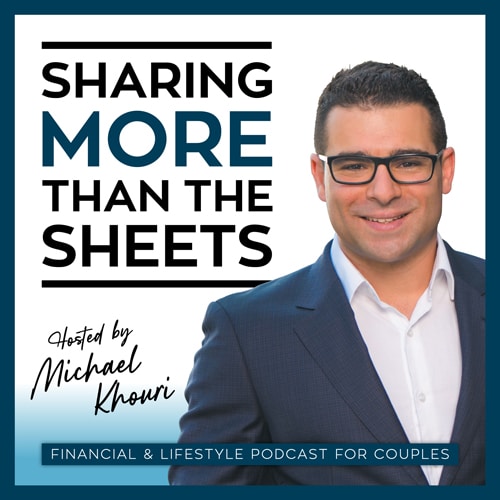How to identify and avoid credit scams
Scammers have clever ways to get your banking, credit card or personal details, and to trick you out of your money by offering you a loan.
Here we explain how you can protect yourself by spotting the warning signs of banking and credit scams.
Credit card scams
Scammers don’t need to steal your credit card to take your money – all they need are your card details. They can get these by:
- contacting you online or by phone, pretending to be your bank or another company, and tricking you into giving them your credit card details
- accessing your information from unsecured websites you’ve visited
- installing spyware on your computer so they can see the files you use, websites you visit and information you store. Spyware can be installed remotely.
Some scammers also steal new cards from letterboxes, skim the details off cards to use later, or apply for cards using stolen identities.
If scammers know your PIN, they can get cash advances from an ATM using a ‘cloned’ credit card (where your details have been copied onto the magnetic strip of another card).
WARNING SIGNS OF A CREDIT CARD SCAM
Your credit card details may have been taken by a scammer if:
- there are purchases on your credit card statement that you didn’t make
- you have accidently given your credit card details (on the phone or internet) to someone you later realise you should not have trusted
- your credit card is lost or stolen.
Loan scams
Scammers will contact you via phone or email to offer you a loan or credit. They will say they are a registered Australian company or Australian credit licensee. They may even have an Australian phone number or address to appear legitimate. If you agree to the loan, they will ask you for upfront payments before you get access to the money.
SIGNS OF A LOAN SCAM
You might be at risk of falling victim to a loan scam if you’re:
- offered a loan by being contacted out of the blue
- asked to make upfront payments before you get the loan, to pay for things like insurance, tax or initial repayments
- told to deposit your upfront payment into a bank account, a cryptocurrency wallet or by buying a gift card for the scammer to redeem
- emailed from a generic email address (e.g. a gmail, hotmail or outlook account), or an email address that looks like it’s from a legitimate institution but is spelled incorrectly
- approved for a loan amount that is more than you require
- offered a very low interest rate.
Requests for account information (phishing)
Scammers may contact you via email, text message, social media, or phone call and pretend to be a bank, financial institution, phone company, or even a university or government agency. The aim of the scam is to get you to give them your personal details, bank account numbers, credit card numbers and most importantly, your passwords.
For example, an email they send may say there has been a security breach and ask you to download their security software, which is really a trojan virus. The virus could infect your computer and give someone else control of it. It could also track your key strokes to get your user names and passwords.
SIGNS OF A PHISHING SCAM
The email or text message you receive is definitely a phishing scam if it:
- claims to be from a bank or company that you do not have an account with
- contains a link that leads you to a website where you are asked to enter your bank account details
- says your details are required for security and maintenance upgrades or to ‘verify’ your account
- says you are due to receive a refund for a fee that you were mistakenly charged.
The email or text message could also be a phishing scam if it:
- does not address you by your full name
- has spelling errors or grammatical mistakes
- is a survey that offers you a reward or prize for filling it in.
How to protect yourself from banking and credit scams
Scammers can be ruthless, so it’s important to be vigilant about protecting your information and know who you’re dealing with.
What to do if you’ve been scammed
If a scammer gets access to your credit card or bank account, call your bank immediately and ask them to freeze the account.
Scammers are skilled at finding ways to get their hands on your money. Always be vigilant about protecting your personal information and be suspicious of anyone offering you easy money – there is almost always a catch.
Wealthness Pty Ltd ABN 13 231 248 112 [t/a Better Financial Planning Australia] is a Corporate Authorised Representative of Infocus Securities Australia Pty Ltd ABN 47 097 797 049 AFSL No. 236523. It is important to be aware that Better Financial Planning Australia is not authorised by Infocus to provide advice relating to credit services or property advice. Infocus is not responsible for any advice outside of the scope of this authorisation and should you wish to act on any of this general information, please first seek professional financial advice.
Wealthness Pty Ltd t/as Better Financial Planning Australia will endeavour to update the website as needed. However, information can change without notice and Wealthness Pty Ltd t/as Better Financial Planning Australia does not guarantee the accuracy of information on the website, including information provided by third parties, at any time.
This information is of a general nature only and neither represents nor is intended to be specific advice on any particular matter. Infocus Securities Australia Pty Ltd strongly suggests that no person should act specifically on the basis of the information contained herein but should seek appropriate professional advice based upon their own personal circumstances. Although we consider the sources for this material reliable, no warranty is given and no liability is accepted for any statement or opinion or for any error or omission.
Wealthness Pty Ltd t/as Better Financial Planning Australia does not give any warranty as to the accuracy, reliability or completeness of information which is contained in this website. Except insofar as any liability under statute cannot be excluded, Wealthness Pty Ltd t/as Better Financial Planning Australia and its employees do not accept any liability for any error or omission on this website or for any resulting loss or damage suffered by the recipient or any other person.
Wealthness Pty Ltd (ACN 613 313 250) [t/a Better Financial Planning Australia] Corporate Authorised Representative of Infocus Securities Australia Pty Ltd ABN 47 097 797 049 AFSL Licence No. 236523. Source: ASIC MoneySmart



